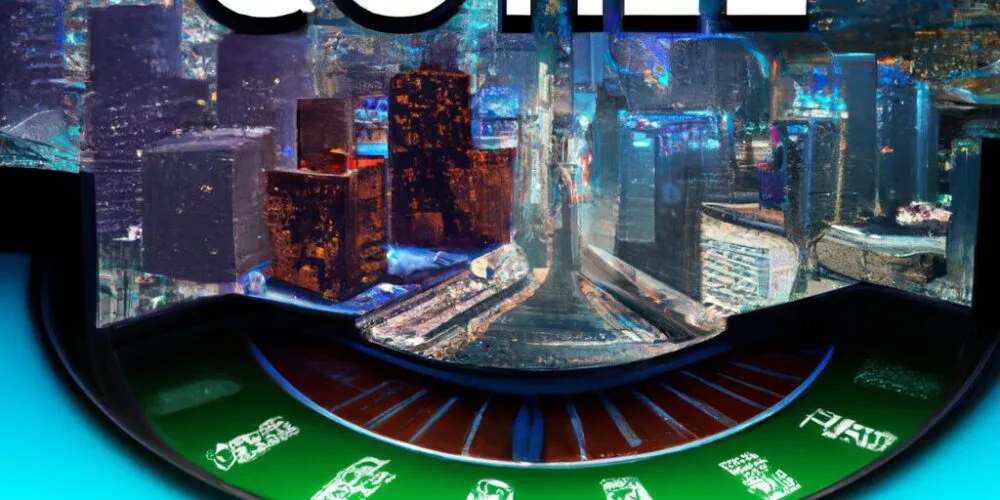In the ever-evolving gambling landscape, the rise of virtual reality (VR) casinos stands out as a groundbreaking shift, enhancing the way players interact and experience games of chance. As technology integrates deeper into our lives, it’s no surprise that the industry giants are investing heavily in VR to provide an immersive gambling experience from the comfort of home.
The Emergence of VR Casinos
Virtual reality technology has transformed numerous industries, and the gambling sector is no different. By wearing a VR headset, users can step into a digitally created world that mimics the physical presence of a traditional casino, complete with slot machines, blackjack tables, and roulette wheels. This setting is not just a visual spectacle; it also enables players to interact with the environment and other gamblers in real time.
One of the pioneers of this revolution is SlotsMillion, the first VR casino that opened its virtual doors in 2015. It offers a range of over 40 VR games, providing one of the most comprehensive VR gambling experiences. As players navigate through the detailed casino floor, the realism of the slot machines and the sound of chips clinking adds to the authenticity of the virtual environment.
Balancing the Real and Virtual: User Experience in VR Casinos
VR casinos aim to deliver an experience that as closely as possible mirrors visiting a physical casino. The realism extends not only to visuals and sound but also to the interactions players can have. In VR casinos, players can use hand gestures to spin slots or deal cards, adding an element of physicality that’s missing in traditional online gambling platforms.
However, the experience is not without its drawbacks. Some users report issues with motion sickness, a common challenge with VR technology. There’s also the aspect of social interaction, which, although improved, still lacks the spontaneous human element present in a brick-and-mortar casino. Nevertheless, the convenience and novelty of being able to traverse a casino floor from your living room manage to outweigh these challenges for many users.
Gaming Selection and Quality
One of the critical measures of any casino’s success, virtual or otherwise, is the quality and diversity of games it offers. VR casinos are still developing in this area, with many not yet able to offer the breadth of games found in their real-world counterparts. However, the games available in VR formats tend to boast superior graphics and more engaging gameplay mechanics than those offered in standard online casinos.
Take, for example, the VR Roulette at CasinoVR. It stands out with its highly interactive interface and realistic physics engine, making it feel eerily similar to betting at a real roulette table. This game highlights how VR can enhance even traditional casino games, offering new layers of engagement and excitement.
Regulatory Challenges and Future Directions
As with any emerging technology applied in a regulated industry like gambling, VR casinos face significant regulatory hurdles. Jurisdictions that allow gambling are still grappling with how to handle and legislate virtual gambling spaces. The key concerns include ensuring fair play, preventing underage gambling, and dealing with the cross-border nature of virtual environments where gamblers from jurisdictions with strict controls can potentially access VR casinos based in more permissive countries.
Going forward, the adoption of AI alongside VR could further revolutionize this space. Imagine AI hosts and dealers who can not only manage games but also provide personalized interactions and manage in-game dynamics based on real-time data. Such advancements could address some current limitations of VR casinos, including the need for more genuine social interactions and the management of game security and fairness.
In Conclusion
VR casinos are redefining what it means to gamble, offering an immersive, interactive, and innovative experience that promises to expand as technology advances. While there are still issues to iron out, from technology adoption barriers to regulatory challenges, the potential for a fully immersive gambling experience is closer than ever. For those who cherish casino visits but dislike the travel, VR casinos offer a compelling alternative, blending the thrill of gambling with the convenience and safety of home.
Whether this will lead to a widespread adoption of VR gambling or merely remain a niche within the broader industry remains to be seen. However, one thing is clear: the gambling landscape is changing, and VR technology is at the forefront of this transformation.


